CDC 2019 Workshop: Systems and Control for Smart Society and Cyber-Physical & Human Systems
Overveiw
Many nations are promoting projects to realize smart society through tight intertwinement between cyber and real-physical components. To this end, the framework of Cyber-Physical Systems (CPS) has successfully enabled multidisciplinary research that involves control systems, communications, networking, sensing and computing to develop new theoretical foundations/tools as well as major technological applications, including transportation, aerospace, health and medicine, robotics, manufacturing, energy management, and environment and sustainability. Construction of smart society requires not only to design these individual smart systems but also to coordinate these systems in a stable, optimal, and economically enabled fashion. A goal of this workshop is to discuss how the global perspective inherent in systems and control could contribute to designing such smart systems. Another main issue of this workshop is how to design Cyber-Physical & Human Systems (CPHS). In smart society, human factors must be naturally involved in the overall system and they must interact with the CPS in various ways at various levels. It is thus evident that the ultimate societal outcomes of future CPHS technologies will depend crucially on deeper understanding of the interactions between cyber-physical systems and humans, and on how to integrate the human factors and their models into the CPS design in order to bring the best outcomes for individuals, organizations, and the society. Revolutionary advances in data science, machine learning, and artificial intelligence technology have opened up new possibilities of rigorously analyzing/modeling humans, not necessarily obeying any physical law, under interaction with CPS. We believe that now is an opportune time to discuss how to best consider human factors in the control loop. This workshop presents state-of-the-art research outcomes on CPHS in some key application fields including intelligent transportation, aerospace systems and robotics.


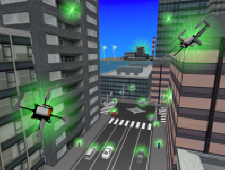
Keywords
smart-X, cyber-physical (-human) systems, resilient control, hybrid control, machine learning, artificial intelligence, game theory
Objectives and Expected Outcomes
A goal of this workshop is to discuss how the global perspective inherent in systems and control could contribute to designing such smart systems. Another main issue of this workshop is how to design Cyber-Physical & Human Systems (CPHS). This workshop presents state-of-the-art research outcomes on CPHS in some key application fields including intelligent transportation, aerospace systems and robotics.
Intended Audience
The target audience consists of graduate students, researchers, and practitioners from industry, academia, and government, interested in security of industrial control systems, as well as game and control-theoretic methodologies for cyber physical & Human systems. There are no prerequisites to attend the workshop.
Tentative Schedule
8:45 - 9:00 Opening Remarks (Organizers) 9:00 - 9:45 Pramod P. Khargonekar (UC Irvine) 9:45 - 10:30 Anuradha Annaswamy (MIT) 10:30 - 10:45 Break 10:45 - 11:30 Rong Su (Nanyang Technological University) 11:30 - 12:15 Dario Bauso (University of Groningen) 12:15 - 13:30 Lunch Break 13:30 - 14:15 Toru Namerikawa (Keio University) 14:15 - 15:00 Tomohisa Hayakawa (Tokyo Institute of Technology) 15:00 - 15:30 Coffee Break 15:30 - 16:15 Scott J. Moura (UC Berkeley) 16:15 - 17:00 Takeshi Hatanaka (Osaka University) 17:00 - 17:15 Closing Remarks and Discussions
Speakers, Titles & Abstracts
Pramod P. Khargonekar (UC Irvine)
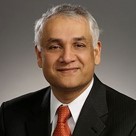
"Role of Systems and Control in Smart-X"
Abstract: Infusion of sensors, communications, networks, computation and control into the physical infrastructure is ushering in a smart society. The term smart-X refers to what is common in smart electric grids, smart mobility, smart city, smart government, smart health, etc. From the point of view of systems and control, we will focus on improvements in extracting useful from data and information from sensors over communications networks to improvements in control and decision making, both enabled by internet-of-things. We will highlight specific examples from our ongoing work in smart electric grids to draw more general conclusions on the role of systems and control fields in smart-X. We will end the presentation with a vision of the future of smart-X where systems and control can join related and complementary disciplines to usher in a new era of smart society where people can enjoy improved lives but is also sustainable.
Anuradha Annaswamy (MIT)
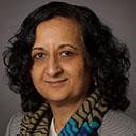
"Shared Control and Prospect Theory: Tools for Analysis and Synthesis for Cyber-Physical & Human Systems (CPHS)"
Abstract: Given the increasing interaction between humans and cyber-physical systems, there is a need for developing tools that provide a quantitative structure to an otherwise qualitative interactive modality. This talk will focus on two such tools that are being studied in our research group, which are Shared Control and Prospect Theory. Examples from Aerospace Systems and Urban Mobility will be used to illustrate these concepts and the roles that they can play in CPHS.
Rong Su (Nanyang Technological University)

"Real-time V2X-based Traffic Signal Control for Large Traffic Networks"
Abstract: The importance of effective urban traffic signal control can never be underestimated owing to the exponentially increasing traffic demands resulted from fast economic development that has been significantly constrained by increasingly saturated space in large metropolises. In this talk I will describe recently developed traffic responsive signal control strategies based on V2X information. By adopting a novel traffic flow dynamic model we can effectively capture drivers responses to the duration of each relevant green period, upon which, by forecasting the traffic demands, a distributed signal control algorithm is utilized to real-time assign green periods to traffic lights in each junction. Identification of traffic congestion regions and forecasting of traffic congestions based on machine learning techniques are used, together with metaheuristic algorithms, to further reduce online computational complexity to ensure a real-time solution for a large traffic network within a distributed control framework. To illustrate the effectiveness of our approaches, realistic VISSIM simulation case studies based on a traffic network in the Jurong area of Singapore have been developed. The outcomes clearly show the viability of our traffic signal control strategy.
Dario Bauso (University of Groningen)
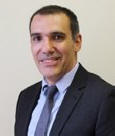
"Data-driven Mean-field Game Approximation for A Population of Electric Vehicles"
Abstract: Dynamic demand response management is here applied to a large population of electric vehicles (EVs) that wish to optimize their charging and discharging policies in a decentralized fashion. The underlying idea is that each EV is fully responsive and adapts its charging policy to a public signal which is made available to all EVs at regular time intervals about the mismatch between supply and demand throughout the grid. Such mismatch implies a deviation of the grid frequency from the nominal value. The main contribution of this study is the development of a model and method to maximize the intelligence of the grid by providing each EV with strategic insight and computational capabilities. In particular, we design a data-driven mean-field game and provide analysis of approximated mean-field equilibrium points based on a receding horizon approach. The model involves stochastic disturbances on the data that drive the game. Some numerical studies illustrating the efficacy of the proposed strategies are provided.
Toru Namerikawa (Keio University)

"Resource Allocation and Control Problem for Urban Smart Transportation System"
Abstract: As a key component of the urban infrastructure system, the development of smart and intelligent transportation networks is expected. At present, information terminals and measurement control devices are beginning to be introduced for the monitoring and control of urban infrastructure systems. In this talk, two resource allocation and control problems for smart transportation systems are presented. At first, the charging scheduling optimization problem of electric vehicle via Stackelberg game is discussed. The charging station determines the price to maximize its own profit from selling energy and each EV determines the energy demand to maximize the charge benefit by competing with other EVs. Next, the smart parking system in urban traffic network is discussed. Searching of parking lot sometimes causes traffic jam in urban traffic network. We propose a novel parking lot allocation and a dynamical parking fee design methodology based on mechanism design.
Tomohisa Hayakawa (Tokyo Institute of Technology)
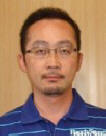
"Incentive Design for Society 5.0"
Abstract: With the rapid progress of artificial intelligence and IoT technologies, digitalization of our society is ongoing at the dizzying rate. This digital transformation (DX) that is comparable to the industrial revolution brings up a new benefit concept as well as disruption in our economic and social activities, enabling meticulous services that have never been thought possible to be realized. In particular, the activities of each entity (company and/or individual) in the digital society from now on will respect the value measure of each entity, and by setting appropriate incentives, it can be possible to bring the utility of each entity and the utility of the whole society to a higher level at the same time. In this talk, we examine the applicability of control theory to constructing a framework of incentive-based social system for the future digital society applications.
Scott J. Moura (UC Berkeley)

"Coupled Transportation and Electric Power Networks in Smart Cities: An Optimization Perspective"
Abstract: Future clean smart cities will feature electrified vehicle fleets for transporting people and goods. EV charging will couple flows across the transportation and power infrastructure. However, this network coupling is not well understood, and therefore infrastructure design and control remain as open topics. In this talk, we examine the challenges imposed by EV charging on these physical networks, via a game-theoretic perspective. Next, we turn our attention to optimally siting EV charging stations and sizing automated electric vehicle fleets in a holistic manner. Economics, emissions, and quality-of-service will be examined. Throughout this talk, optimization and network graph theory will play instrumental roles in solving these challenges. As such, we close with perspectives on how systems and control engineers are uniquely positioned to address some of the greatest challenges facing smart cities of today and tomorrow.
Takeshi Hatanaka (Osaka University)

"Human-Robotic Network Teaming - Passivity-Based Design and Analysis -"
Abstract: Towards realizing smart society, human factors need to be involved in the overall systems and they must interact with the cyber-physical systems in various ways and at various levels. This talk is intended to review our work on passivity-based design and analysis of networked semi-autonomous robotic systems. We start with presenting a distributed control architecture for motion coordination of autonomous robotic networks. The control architecture is then extended to one-human–multiple-robot control architecture to accept mediacy of the human flexible decision-makings and situation awareness. It is then shown through data analysis that the human passivity, assumed in the passivity-based design, may be violated due to the imperfect human ability to learn the inverse model of the robots over the high frequency domain. A novel architecture is thus developed to accept the human passivity shortage. We then discuss the best shared autonomy in the context of the human workload and transparency.
Organizers:
Toru Namerikawa (Keio University),
Masaaki Nagahara (The University of Kitakyushu),
Takeshi Hatanaka (Osaka University)